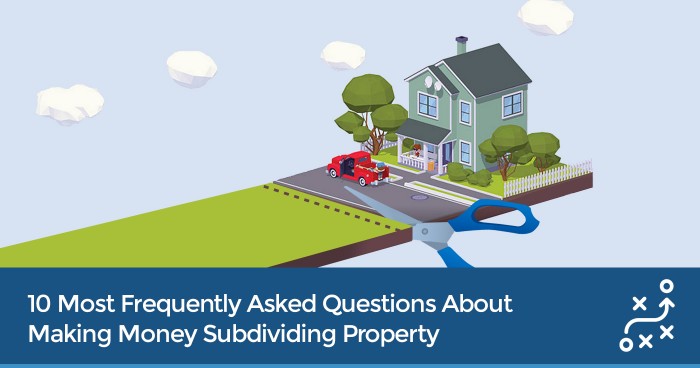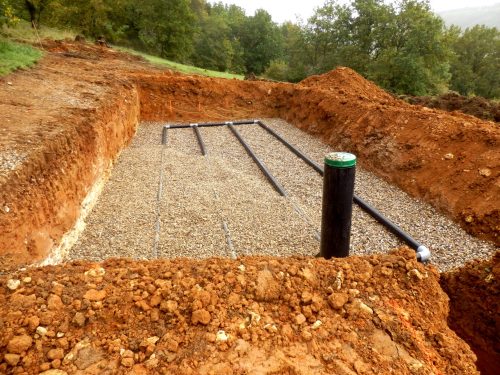10 Most Frequently Asked Questions About Making Money Subdividing Property

Back To The Basics
For those of you who were getting worried about were I disappeared to, I’m glad to announce: I’m back!
We have just concluded another terrific PIPA event, and now it’s time to get back to the basics and my all time favourite strategy… Subdivision!
In today’s post I will answer your top ten most frequently asked questions about subdividing property.
1. What Does It Cost To Do A Subdivision?

I'm pulling back the curtain, revealing my best kept Deal Finding Secrets!
- My Secret Search Strategies: Unlock hidden cracker deals no one else knows about
- Stop wasting hours on research: Simple setup automatically hunts down hot deals for you!
- How to use Australia’s top research tool anytime to turning boring research into an exciting treasure hunt
- Bonus: Free Research Tool Credits Included!
🎯 Don’t miss this!
The 6 main costs should include:
- Purchase price
- Purchase costs (stamp duty, mortgage registration, legals)
- Renovation costs
- Subdivision costs
- Holding costs (interest repayments, rates, insurance etc)
- Selling costs (agents fees, legals)
There are also many professionals and contractors that you will need to employ to complete your subdivision as well as some substantial costs along the way.
Here are some of the key people you will need on your team: town planner, surveyor, solicitor, mortgage broker or bank representative, accountant, real estate agent, plumber, structural or civil engineer, arborist.
These expenses are broad costs only and I go into more details about subdivision costs on this blog post:
2. How Do I Deal With Drainage And Stormwater Run Off From My Site?

The preparation of your site for construction will depend on the characteristics of your site in the first place.
Creating a level site and building retaining walls will be specified in the council conditions, the key thing to remember is what happens to the water when rain falls on the site. Stormwater needs to exit the site via the proper channels without affecting neighboring sites.
For example, if the lot slopes away from the road and from stormwater exit points, you may need to engage an engineer to design a system that brings the water up to the road or exit point for the water. This will increase your expenses by tens of thousands of dollars depending on the site and is often best to walk away from the property if there are substantial drainage issues.
3. When Can I Put The Fence Up And Start To Market The New Lots?

Fences are generally not compulsory in some councils when completing a subdivision, however they do help define the lot for potential buyers.
Fences should be one of the last construction items that you implement so as not to impede access.
4. How Do I Find A Block That Is Subdividable But Still Stacks Up In The Feasibility?

Like any property investing strategy it takes skill to find, negotiate and acquire a site that meets the needs of you the investor.
To enhance this skill it’s important to become an area expert first which means choosing two or three suburbs and become intimate with what each property in that area is worth in the current market. From there you should be educating yourself on what parameters council have set for potential subdivision sites e.g. minimum lot size, frontage etc.
Build a good network of agents in the area to help you find the right site and use online resources like realestate.com.au, pricefinder.com.au and googlemaps.com.
You may also be able to get access to integrated mapping services that your local council might provide e.g. www.developmenti.brisbane.qld.gov.au is a free mapping service provided by the Brisbane City Council.
Coupling all these resources together will assist in finding that elusive property deal and in my DIY Subdivision Masterclass I provide on screen videos, document strategies and feasibility studies across various resources to help you find the right site to make a profit. Join the Ultimate Property Hub now to access the DIY Subdivision Masterclass
5. What Is The Difference Between A Splitter (2 Lots) And A Subdivision?

A splitter block is described as two lots on one title and has proven in the past to be a very profitable investing strategy to implement.
Splitter blocks seem to be most common in Brisbane and there are online resource tools you can use to filter through properties in each suburb to narrow down the sites that are in fact splitter blocks.
PriceFinder is an exceptional tool for doing this and you can have a look at video 3 at the following link that details how to find splitter blocks using PriceFinder.
6. Do I Need To Install Service Infrastructure Like Sewer, Water And Power To Complete My Subdivision And Acquire Titles From Council?

This will depend on the type of subdivision and the expectations of council.
Generally, you will be required to connect sewer and water infrastructure to the new lots; ensure electricity and telecommunication can be supplied to the site; create crossovers, driveways and potentially footpaths as well; fencing is not compulsory but helps define the lot for the new buyer.
There are other potential expectations such as fire hydrant in close proximity, sewer manholes etc.
7. How To Approach Neighbors And Negotiate Access Or Buy A Piece Of Land To Make Your Land Area Bigger?

Approaching neighbours to maximise your site or improve the value by bringing it up to a minimum lot size is a great idea.
In my experience, I find the personal approach of door knocking very effective. It can be a little daunting but most people will be glad to open their house to you if approached in a non-threatening, respectful manner.
You can also leverage off your local real estate agent and ask them to approach the property owner instead. A good agent will be more than happy to help given the opportunity to acquire a new listing.
8. Can You Subdivide Blocks That Slope To The Rear And What Extra Considerations/Issues Need To Be Taken Into Account?

Yes, you can apply to subdivide a lot if it slopes to the rear however you will need to do a lot more due diligence to manage the extra costs to manage your overland flow of water.
Also, you will need to determine how stormwater and sewer leaves your site and enters the main infrastructure. For example, if the sewer line is at the top the block and you need to pump waste up to that sewer line, the costs can be astronomical and will often render the project not viable.
Most councils would not like overflow created by rain, to flow into other neighboring properties so if your site slopes to the rear and you can’t manage the water exiting your site, I would be walking away from the property.
9. How Long Does It Take To Subdivide?

Timeframes can vary substantially within a subdivision and its always best to allocate more time than necessary to account for inclement weather conditions, council information requests, objections from neighboring properties and any unforeseen items that may need to be dealt with.
If your project meets all council codes and expectations the process could be as quick as 3 months. Should there be complexities within the site it may take up to 12 months or longer to complete.
10. Do You Have To Have A Town Planner Or Can You Simply Visit The Council Offices And Get Their Advice On How To Go About It?

You can submit an application to subdivide yourself however the likelihood of it being approved can be reduced due to your associated skill level and ability to foresee council expectations for a particular site.
Paying an expert to complete a task you are less familiar with will always yield better results.
In my experience councils are often good at providing information but will rarely give insight into the viability of a project like a private town planner would.
12 Steps To Creating Fast Profits And Equity On Your Next Deal
So there you have it – the answers to our top 10 subdivision FAQ!
Now, if you would like to learn the 12 Steps To Creating Fast Profits And Equity On Your Next Subdivision – then check out the DIY Subdivision Masterclass inside the Ultimate Property Hub
I hope to see you inside the UPH!
Cheers,
Matt
P.S. It’s gooooooooood to be back! 🙂
Looking for proven ways to create profits in the current market?
You'll find over 200 step-by-step case project studies, our renown Master Classes and Property Crash Courses… and heaps more!
Try the Ultimate Property Hub now –– it's free!


0 thoughts on "10 Most Frequently Asked Questions About Making Money Subdividing Property"